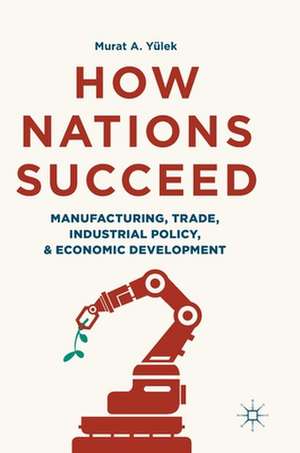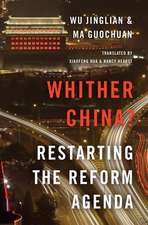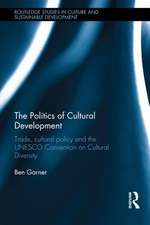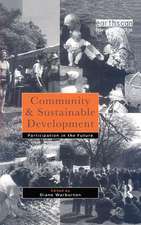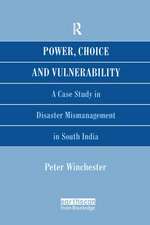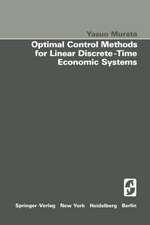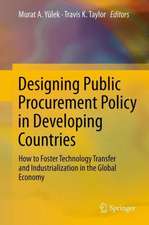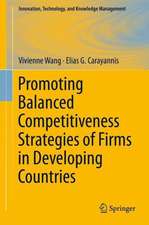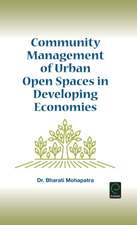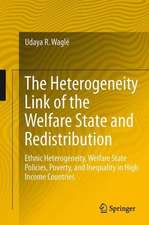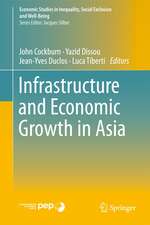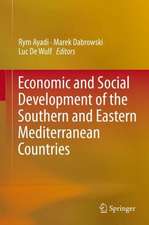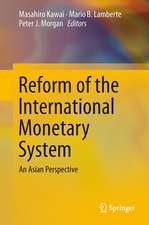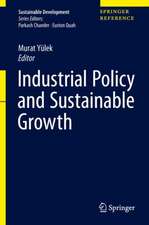How Nations Succeed: Manufacturing, Trade, Industrial Policy, and Economic Development
Autor Murat A. Yüleken Limba Engleză Hardback – 13 aug 2018
This book assesses developmental experience in different countries as well as British expansion following the industrial revolution from a developmental perspective. It explains why some nations are rich and others are poor, and discusses how manufacturing made economies flourish and spur economic development. It explains how today’s governments can design and implement industrial policy, and how they can determine economically strategic sectors to break out of Low and Middle Income Traps.
Closely linked to global trade and (im)balances, industrialization was never an accident. Industrialization explains how some countries experience export-led growth and others import-led slowdowns. Many confuse industrialization with the construction of factory buildings rather than a capacity and skill building process through certain stages. Industrial policy helps countries advance through those stages.
Explaining technical concepts in understandable terms, the book discusses the capacity and limits of the developmental state in industrialization and in general in economic development, demonstrating how picking-the-winner type focused industrial policy has worked in different countries. It also discusses how industrial policy and science, technology and innovation policies should be sequenced for best results.
| Toate formatele și edițiile | Preț | Express |
|---|---|---|
| Paperback (1) | 582.45 lei 6-8 săpt. | |
| Springer Nature Singapore – 30 ian 2019 | 582.45 lei 6-8 săpt. | |
| Hardback (1) | 789.83 lei 6-8 săpt. | |
| Springer Nature Singapore – 13 aug 2018 | 789.83 lei 6-8 săpt. |
Preț: 789.83 lei
Preț vechi: 963.21 lei
-18% Nou
Puncte Express: 1185
Preț estimativ în valută:
151.14€ • 158.12$ • 125.55£
151.14€ • 158.12$ • 125.55£
Carte tipărită la comandă
Livrare economică 02-16 aprilie
Preluare comenzi: 021 569.72.76
Specificații
ISBN-13: 9789811305672
ISBN-10: 9811305676
Pagini: 374
Ilustrații: XXX, 284 p. 50 illus., 44 illus. in color.
Dimensiuni: 148 x 210 x 26 mm
Greutate: 0.67 kg
Ediția:1st ed. 2018
Editura: Springer Nature Singapore
Colecția Palgrave Macmillan
Locul publicării:Singapore, Singapore
ISBN-10: 9811305676
Pagini: 374
Ilustrații: XXX, 284 p. 50 illus., 44 illus. in color.
Dimensiuni: 148 x 210 x 26 mm
Greutate: 0.67 kg
Ediția:1st ed. 2018
Editura: Springer Nature Singapore
Colecția Palgrave Macmillan
Locul publicării:Singapore, Singapore
Cuprins
1. The Old World Order: Trade before the empires on which the sun never set.- 2. The Pre-Industrial New World Order: Colonial empires on which the sun never set.- 3. British Colonial Empire and Industrial Policy: Protection, Monopolized Trade and Industrialization.- 4. How Industrialized Nations Industrialized.- 5. The “Why” of manufacturing.- 6. Global Imbalances: Export-led growth vs import-led slow down.- 7. Value Added and the GDP: The smart vs the donkey.- 8. The industrialization process: A streamlined version.- 9. The Industrial Layer.- 10. Industrialization as capacity building: Skills, technical progress and technical capabilities.- 11. The State and State Capacity.- 12. The “How” of manufacturing: Industrial Policy.- 13. Industrial Policy: Some Case Studies from Today’s World.- 14. Putting it all together: How nations succeed through industrial policy.
Recenzii
“The book provides contemporary case studies of successful episodes of industrial policy, such as Sweden’s Saab, Europe’s Airbus and South Korea’s automobile and nuclear reactor industries. Overall, this book is an excellent volume on industrial development and sustainable policies to drive this. One can only expect that the book will have a wide readership, and the information contained within it will be able to change perspectives of the industrial process.” (Uchenna R. Efobi, LSE Review of Books, blogs.lse.ac.uk, March 21, 2019)
Notă biografică
Murat A. Yülek is the Director of the Centre for Industrial Policy and Development at Istanbul Commerce University and has also taught at Georgetown University. A widely published former IMF economist and a corporate executive, he has had responsibilities that include corporate finance, development and macroeconomic policy in various countries.
Textul de pe ultima copertă
“Illuminates one of the most important questions of our time, ‘Why does manufacturing matter?’ interweaving economics with history, theory and empirics from an international perspective.”
—Franco Mosconi, Jean Monnet Professor, Universitá degli Studi di Parma, Italy
“Brilliant, incisive analysis of industrialization; significantly improves the understanding of industrialization and economic development; a must read for Governments, policy makers, investors, development professionals, and general public.”
—Vivienne Yeda, Director General, East African Development Bank
“A must-read, a tour de force on the theory and policy of industrialization; offers important insights on how countries can avoid the middle-income trap.”
—Travis Taylor, Honors Program Faculty, Christopher Newport University, USA
This book assesses developmental experience in different countries as well as British expansion following the industrial revolution from adevelopmental perspective. It explains why some nations are rich and others are poor, and discusses how manufacturing made economies flourish and spurred economic development. It considers how today’s governments can design and implement industrial policy, and determine economically strategic sectors to break out of Low and Middle Income Traps.
Closely linked to global trade and (im)balances, industrialization was never an accident. Industrialization explains how some countries experience export-led growth and others import-led slowdowns. Many confuse industrialization with the construction of factory buildings rather than a capacity and skill building process through certain stages. Industrial policy helps countries advance through those stages.
Explaining technical concepts in understandable terms, the book discusses the capacity and limits of the developmental state in industrialization and in general in economic development, demonstrating how picking-the-winner type focused industrial policy has worked in different countries. It also discusses how industrial policy and science, technology and innovation policies should be sequenced for best results.
Murat A. Yülek is the Director of the Centre for Industrial Policy and Development at Istanbul Commerce University and has also taught at Georgetown University.
—Franco Mosconi, Jean Monnet Professor, Universitá degli Studi di Parma, Italy
“Brilliant, incisive analysis of industrialization; significantly improves the understanding of industrialization and economic development; a must read for Governments, policy makers, investors, development professionals, and general public.”
—Vivienne Yeda, Director General, East African Development Bank
“A must-read, a tour de force on the theory and policy of industrialization; offers important insights on how countries can avoid the middle-income trap.”
—Travis Taylor, Honors Program Faculty, Christopher Newport University, USA
This book assesses developmental experience in different countries as well as British expansion following the industrial revolution from adevelopmental perspective. It explains why some nations are rich and others are poor, and discusses how manufacturing made economies flourish and spurred economic development. It considers how today’s governments can design and implement industrial policy, and determine economically strategic sectors to break out of Low and Middle Income Traps.
Closely linked to global trade and (im)balances, industrialization was never an accident. Industrialization explains how some countries experience export-led growth and others import-led slowdowns. Many confuse industrialization with the construction of factory buildings rather than a capacity and skill building process through certain stages. Industrial policy helps countries advance through those stages.
Explaining technical concepts in understandable terms, the book discusses the capacity and limits of the developmental state in industrialization and in general in economic development, demonstrating how picking-the-winner type focused industrial policy has worked in different countries. It also discusses how industrial policy and science, technology and innovation policies should be sequenced for best results.
Murat A. Yülek is the Director of the Centre for Industrial Policy and Development at Istanbul Commerce University and has also taught at Georgetown University.
Caracteristici
Explains how manufacturing and industrial policy supports economic development Introduces a stylized industrialization process which can be used to locate a country’s stage of industrialization and a parsimonious method to determine economically strategic sectors Discusses the links between industrial policy on the one hand, and macroeconomics, international trade and capital flows, global imbalances, and the educational system, on the other
